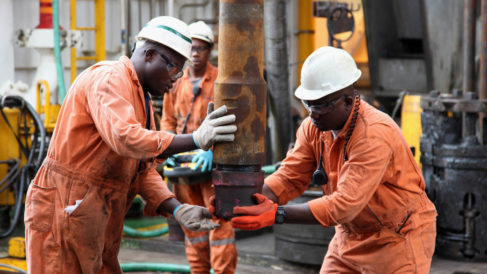Nigeria’s monthly oil output has consistently declined since January 2024, costing the country almost N636.3 billion in lost income.
According to figures on oil production obtained from a Federal Government agency, Nigeria produced 1.43 million barrels of crude oil (excluding condensates) in January of this year, but by May, that amount had dropped to just 1.25 million barrels per day, based on research from Sunday PUNCH.
The Nigerian Upstream Petroleum Regulatory Commission provided our reporter with data indicating that the overall volume of crude produced decreased from 44.22 million barrels in January to 38.8 million barrels in May.
According to NUPRC data, this indicates a 5.43 million barrel decrease in crude oil production between January and May of this year.
The global benchmark for crude oil, Brent, was $80.12/barrel on average in January but increased slightly to $81.75 in May, based on statistics from the international statistical firm Statistica.
Additionally, in May of this year, the naira’s average exchange rate against the dollar was 1,434.1/$. Since the Central Bank of Nigeria unified the nation’s foreign exchange markets on June 14, 2023, the naira has been weakening.
An estimated N636.3 billion was lost by Nigeria between January and May of this year due to the 5.43 million barrels of crude oil output decline, the price of Brent, and the naira’s exchange rate.
Nigerian crude oil production was further noted to have decreased from 1.43 million barrels per day in January to 1.32 million barrels per day in February, 1.23 million barrels per day in March, 1.28 million barrels per day in April, and 1.25 million barrels per day in May.
Crude oil theft and pipeline vandalism have been identified as the main causes of Nigeria’s ongoing decline in oil production.
Although it has not been as successful as expected, the government has been working to remedy this issue.
The Nigerian National Petroleum Company Limited, for example, petitioned the judiciary to establish a special court to trial those responsible for oil theft and pipeline destruction on June 13, 2024.
At the National Judges Capacity Building Workshop on the Petroleum Industry Act 2021, which was conducted in Abuja by the National Judicial Institute and INVESTIN 234; Mele Kyari, the Group Chief Executive Officer of NNPC, stated the argument.
In addition, Kyari called on the courts to expedite trials for crimes involving pipeline damage and theft of crude oil, as stated in a statement released at the time by NNPC spokesperson Olufemi Soneye.
The NNPC helmsman further stated that in order for the oil and gas sector to realise its full potential as a catalyst for the development of the country’s industrial and economic sectors, the court must be brought into the fight against pipeline vandalism and crude oil theft.
Major oil corporations bemoaned the effect of oil theft and pipeline damage on the supply of crude for nearby refineries, as our correspondent had exclusively revealed.
Dr. Chinyere Almona, the Director-General of the Lagos State Chamber of Commerce and Industry, has cited pipeline vandalism and crude oil theft as the main causes of the oil majors’ failure to reach their daily quotas.
She added that it was difficult for modular refineries to obtain enough oil.
She also mentioned that the Dangote Petroleum Refinery and other modular refineries are unable to get crude from international oil corporations due to Nigeria’s poor crude oil production.


